An Introduction to Perimenopause and Menopause
Perimenopause is the time when the body begins the natural transition to menopause, marking the end of a woman's reproductive years. Perimenopause, also known as the menopausal transition, is the time when the body stops ovulating, menstruation stops, and fertility is no longer possible. This period usually occurs between the ages of 45 and 50, and can last 2-5 years depending on the person. This is a time when the body undergoes major changes due to a decrease in estrogen levels, leading to many unpleasant symptoms such as hot flashes and mood swings.
Understanding perimenopause will help you find the right methods for yourself to deal with the symptoms that occur during this period. One of the most researched natural solutions is isoflavones derived from soybeans.
What are Isoflavones?
Isoflavones are powerful antioxidants, with over a thousand plant-based isoflavones identified. But only a few have been shown to have amazing health benefits. One of them is the isoflavones derived from soybeans, also known as Soy Isoflavone.
Isoflavones are also a type of phytoestrogen, similar to natural estrogen in the body. They are mainly found in soybeans and soy products. Studies have shown that iso-flavones can help regulate premenopausal and menopausal symptoms by providing a gentle dose of estrogen.
The main ingredients in soy isoflavones are well known as Genistein, daidzein, glycitein, Formononetin and biochanin A, which have the effect of preventing cardiovascular diseases, osteoporosis, breast cancer, prostate cancer, premenopausal symptoms...
Benefits of isoflavones in perimenopause
Reduce hot flashes:
Soy Isoflavone is widely used to reduce hot flashes at night in premenopausal and menopausal subjects.
Results from 16 studies, involving 1710 women, showed that soy isoflavones can reduce hot flashes by 25.2% compared to placebo, about 45% as effective as using oestradiol overall and completely safe. However, soy isoflavones are slower acting, taking at least 13 weeks to reach half their maximum effect, compared to 3 weeks for oestradiol. But regular supplementation of soy isoflavones for a year or more will achieve 48% of their maximum effect after 48 weeks, so you should consider not giving up using them too soon.
Improve bone health:
During the perimenopause, estrogen decline increases the risk of osteoporosis. Isoflavones have the ability to stimulate bone-forming cells and reduce bone loss, thereby supporting bone health in women.
Effects of Soy Isoflavones and benefits for heart disease
Soy Isoflavones may reduce the risk of coronary heart disease. As well as having antioxidant, anti-inflammatory effects, soy isoflavones interact with estrogen receptors in the blood to dilate coronary arteries, reduce arterial stiffness, lower blood pressure and reduce platelet stickiness preventing unwanted blood clots from forming.
In addition, it can significantly reduce LDL-cholesterol 'bad cholesterol' and triglyceride levels while significantly increasing HDL cholesterol 'good cholesterol'. Results from 17 studies, involving more than 17,200 subjects; with cardiovascular disease showed that people who regularly used Soy Isoflavones were less likely to have a heart attack or stroke than those who did not.
Improve mood and sleep:
Isoflavones have a positive effect on mood and sleep. This is due to their ability to regulate hormones and reduce anxiety, helping women get through this period more easily.
Considerations When Using Isoflavones
Although soy-derived isoflavones offer many benefits during perimenopause and menopause, there are a few things to keep in mind:
Consult your doctor:
Women should consult their doctor before taking supplements or increasing the amount of soy in their diet, especially if they have a history of hormone-related medical conditions.
Sensitive subjects:
Some women, such as those with breast or thyroid disease, need to be cautious when using isoflavones. This is because each person's body is clearly different.
Side effects:
Using too much isoflavones can lead to side effects such as bloating, nausea or changes in the menstrual cycle. Therefore, users need to monitor their body and adjust the appropriate dosage.
How to supplement isoflavones through diet
Soybeans are the main food that provides isoflavones. Soy products such as tofu, soy milk, and tempeh are also very popular. You can easily add isoflavones to your daily diet through dishes such as:
· Soy milk: A glass of soy milk is not only a nutritious drink but also helps improve health during perimenopause.
· Tofu: Can be processed into many delicious dishes, from soup to stir-fry, very easy to consume.
· Tempeh: A food rich in protein and isoflavones, which helps provide energy to the body.
Conclusion
Perimenopause and menopause are natural stages but can cause many discomforts. Supplementing with isoflavones derived from soybeans is one of the effective methods to help women balance hormones and improve health. In addition, a reasonable diet and regular check-ups will help support optimal health during this stage.
Source: Team MPS compiled, analyzed and wrote. Please dont reup without source. Many thanks.
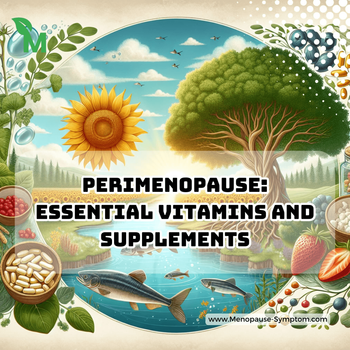
Perimenopause: Essential Vitamins And Supplements
10.08.2024
Perimenopause is an important stage in every woman's life, marking the transition from youth to adulthood.

Nutritional Yeast For Menopause: A Plant-Based Approach
09.02.2024
Every woman will experience menopause sooner or later. Instead of panicking or worrying, women should proactively learn about this condition and its typical symptoms to overcome this stage smoothly.
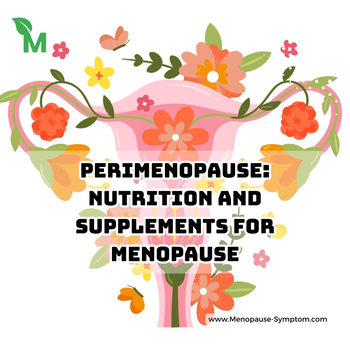
Perimenopause: Nutrition And Supplements For Menopause
10.07.2024
Perimenopause is a challenging transition for many women, usually starting in their 40s. During this time, hormonal changes occur, causing a variety of unpleasant symptoms, from headaches to hot flashes.
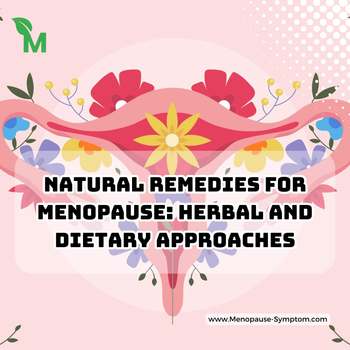
Natural Remedies For Menopause: Herbal And Dietary Approaches
10.07.2024
Perimenopause and menopause often bring many physical and mental changes for women - This is a natural stage in every woman's life.
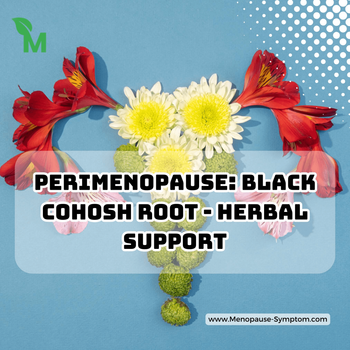
Perimenopause: Black Cohosh Root - Herbal Support
09.02.2024
As women enter perimenopause, their bodies begin to undergo significant changes. This period marks an important transition in every woman's life, but it also comes with its own set of challenges and problems.
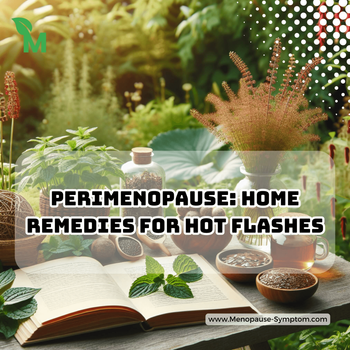
Perimenopause: Home Remedies For Hot Flashes
10.08.2024
You must be wondering about perimenopause and are interested in the changes it brings to a woman's body. Perimenopause usually begins when a woman is in her 40s and can last for 2-5 years depending on the individual, before entering the actual menopause.
